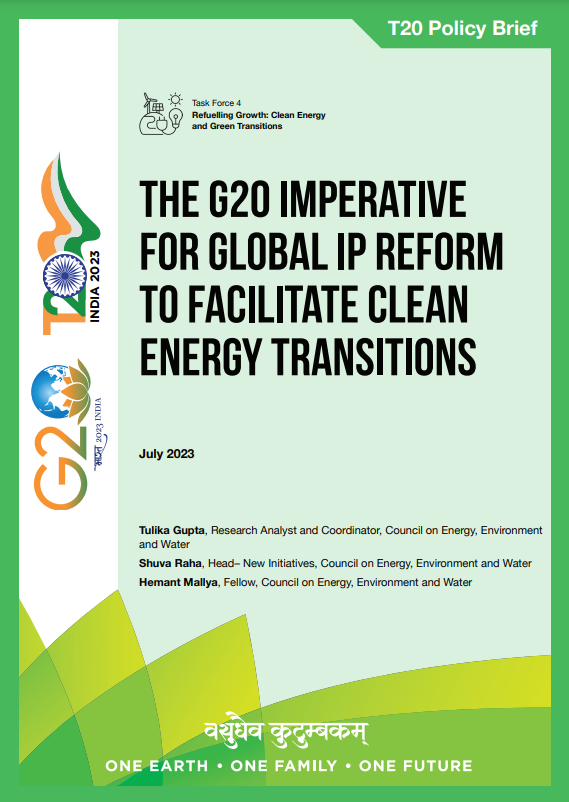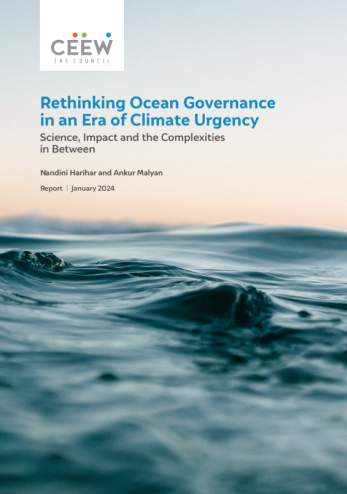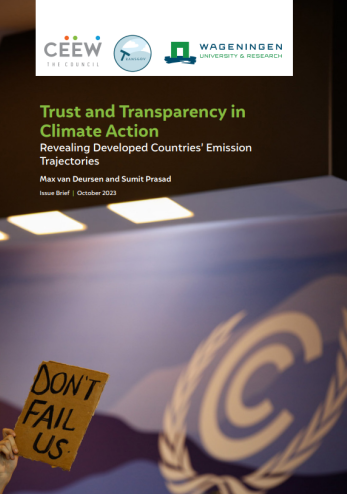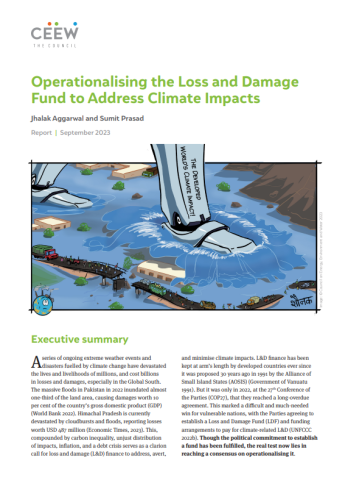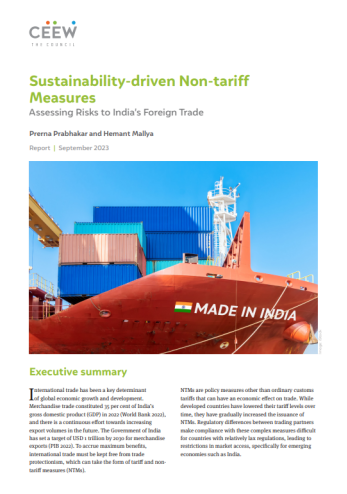Policy Brief
The G20 Imperative for Global IP Reform To Facilitate Clean Energy Transitions
Tulika Gupta, Shuva Raha, and Hemant Mallya
July 2023 | International Cooperation
Suggested citation: Gupta, Tulika, Shuva Raha, and Hemant Mallya. 2023. The G20 Imperative for Global IP Reform To Facilitate Clean Energy Transitions. T20 Policy Brief.
Overview
This T20 policy brief establishes why the technology-rich and market-oriented G20 should create a Tech20 Engagement Group to establish norms for technology access, sharing and co-development.
Much of the energy transition depends on timely, affordable, shared, and scaled-up access to emerging green technologies. Developed countries own most green technologies, leverage Intellectual Property (IP) rights, and subsidise domestic deployment, while also erecting trade barriers to protect their own industries. This technology dominance creates an immediate and overwhelming barrier, stalling the energy transition for billions of people, especially in developing countries.
Highlights
- Globally installed renewable energy (RE) capacity must triple in the next seven years for the world to remain on track to achieve net zero emissions around mid-century. However, solar, wind, and biofuel-based RE accounts for just ~5 per cent of global energy consumption, nearly all of which (~93 per cent) is collectively consumed by G20 countries. Exponentially increasing installed RE capacity and its share in the global energy mix will require equitable access to emerging technologies.
- G20 countries own ~91 percent of the patents granted under the Patent Cooperation Treaty (PCT) in environmental technology (solar, wind, hydro, geothermal, fuel-cell, and waste management) between 2000 and 2021, with just five G20 countries (China, Japan, USA, the Republic of Korea, and Germany) accounting for ~85 per cent of those patents.
- Indigenous capacity building policies such as subsidies and local content requirements in Canada and India were restrained by WTO rulings. Now that the WTO lies inert due to a veto on Appellate Body member appointments, developed countries are using subsidies to boost domestic industry and undercut international competitors, while also erecting new trade barriers to protect their green industries.
- Recognising the threat posed by technology and finance gaps, developing countries have long pushed to include ‘technology transfer’ in international trade and climate agreements. Yet, technology and patent sharing provisions have failed to bridge access gaps even during the COVID-19 pandemic.
- The G20 has addressed the question of technology cooperation, transfer, co-development, and IP sharing several times since 2014, especially for sustainable energy and innovative technologies.
- India’s G20 Presidency has highlighted the need for international cooperation to close clean energy technology gaps in emerging areas such as carbon capture, utilisation, and storage, electrolysers for green hydrogen, high efficiency fuels cells, advanced cell chemistry for battery storage, and small modular nuclear reactors.
Recommendations
- Establish a Tech20 Engagement Group. This can comprise G20 country representatives, industry leaders, and civil society members, to facilitate technology cooperation, co-development, sharing, and IP reforms.
- Create a voluntary, open-access patent pool for green technologies through Tech20. This will allow individual member countries to contribute patents to, and draw from the pool/bank.
- Collaborate with the Research and Development 20 (RD20) Engagement Group to transition from facilitating exchanges between G20 scientific institutions to a knowledge exchange and collaboration platform, mandating the co-ownership of any resulting technology.
- Discuss the scope and procurement of technology finance. The Tech20 can also be a platform to discuss financing for indigenous development and deployment of green technologies and infrastructure by the G20, suited to different countries’ specific circumstances.
"This technology stockpile, if not shared now – first within the G20, and then worldwide – will be of little use if the 1.5°C mark is breached, leading to devastating socio-economic consequences for future generations."




